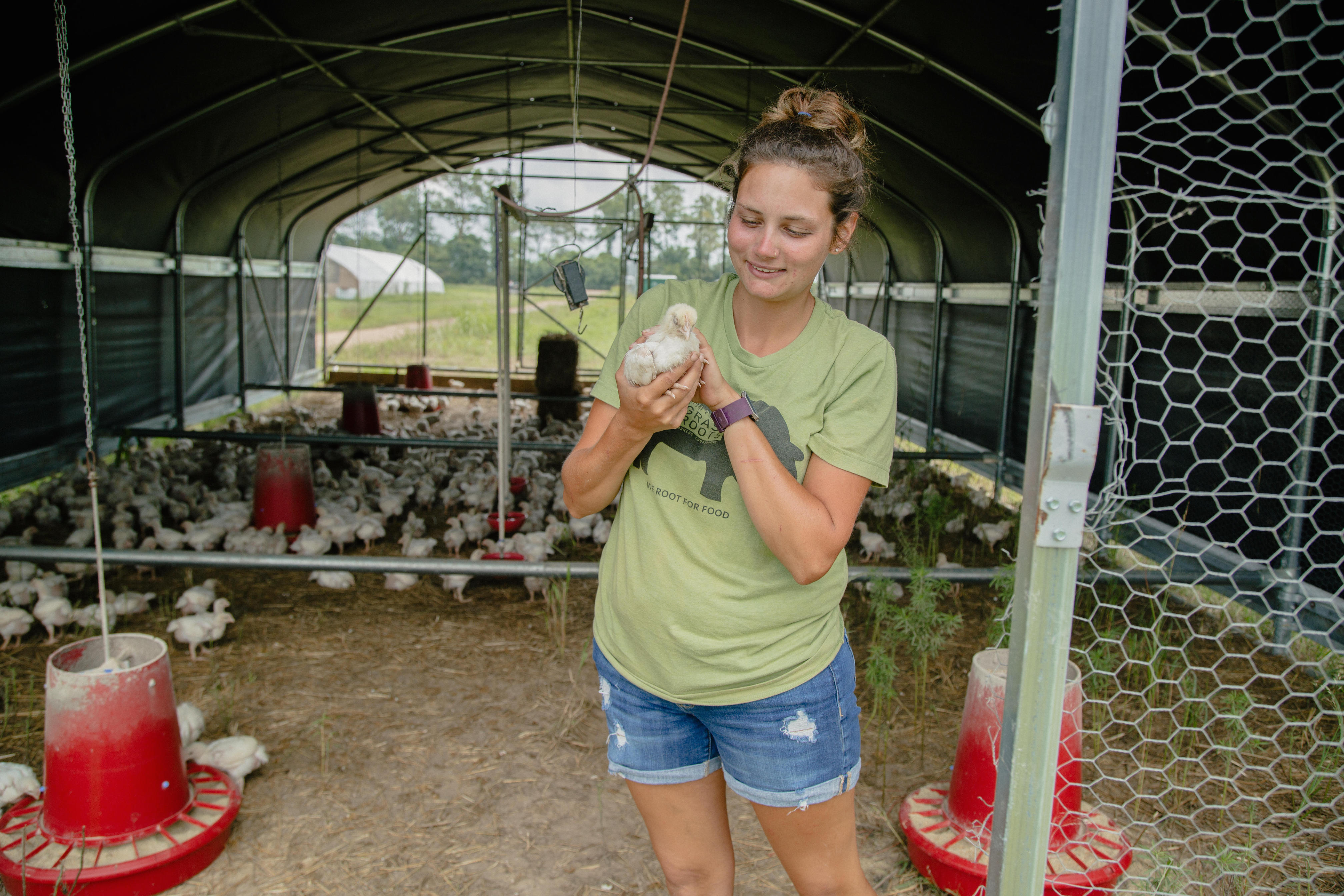When Steve and Ashley Dettelbach started their farm near Wynne, Arkansas, the two of them both worked additional full-time jobs to pay the bills and take care of their four children. Steve Dettelbach worked in maintenance for a factory in town, and Ashley Dettelbach ran a daycare service.
“We had a daycare out of the front of the house and then a farm out back,” Steve Dettelbach said. “Watching babies and selling vegetables. That was crazy.”
Steve's brother, Jeff, who is also a founder of the farm, put in his farm hours on top of the work he did as an electrical engineer and electrician.
For many small-scale farmers in the U.S., off-farm income is a necessity to keep the farm afloat. According to the latest Census of Agriculture, three-fourths of the nation’s 2 million farmers sell less than $50,000 worth of food a year; more than half sell less than $10,000.

For the Dettelbachs, joining a pair of cooperatives supported by Heifer USA made full-time family farming a reality relatively quickly.
“Where we’re at right now, three years in, it would have taken us 8 or 10 years to get where we’re at,” Steve Dettelbach said.
Heifer USA helps create good jobs and sustain higher incomes for farmers through the creation of farmer-owned cooperatives. So far, Heifer USA has helped start Grass Roots Farmers’ Cooperative, which focuses on pasture-raised and grass-fed meats, and New South Produce Cooperative, which sells sustainably grown fruits and vegetables. The Dettelbachs decided to join both, and co-op membership has transformed the way they farm.
“The original plan for Dettelbach Farm was that we were going to raise 5,000 chickens in 2014, and I was going to market them,” Steve Dettelbach said. “Instead, we grew 4,000 chickens and sold every one of them to Grass Roots. The next year, we raised 10,000 chickens, a step up from where we would have been.
“And even if I had marketed off 5,000 birds (myself), it would have meant being gone six, seven days a week, that’s the thing.”
Through the cooperatives, farmers don’t shoulder the burden of selling their products. They sell to the cooperatives, which take care of the marketing. Since the co-ops sell a large amount of produce or meat, aggregated from the entire group of farmers, they attract new and larger markets for the products. That frees farmers to spend more time working on their farms. Freedom from marketing responsibilities also saves families like the Dettelbachs money.
In the United States, farmers, on average, only pocket $0.16 of every dollar of food they sell. The other $0.84 is reinvested into marketing, packaging and distribution costs for their products. Heifer USA farmers keep about $0.75 of every dollar, with the remaining $0.25 going to the co-ops, which the farmers themselves own.
Steve Dettelbach attributes the family’s success to grit, passion and “just a crazy amount of giving a damn."
Another one of the Dettelbachs’ favorite benefits is the opportunity to learn from the other co-op farmers. “It’s like college. We’re going to college,” Ashley Dettelbach said. Steve Dettelbach added that seeing the successes and failures of other farmers really accelerates the progress of the farm.
Initially, the Dettelbachs’ neighbors were skeptical about farming without pesticides or chemicals. That has changed, too.
“Seriously, when people mention livestock or vegetables (around here), they say go down and talk to the Dettelbachs,” Steve Dettelbach said.
Early on in their chicken business, the Dettelbachs had one of the best years in Grass Roots, and that initial success is the last bit of confidence Steve and Ashley Dettelbach needed to leave their jobs for full-time farming. Jeff Dettelbach is still working off the farm but would love to move to full-time farming in the future. "Farming is my true passion," he said.
Despite the support of the co-ops and fellow farmers, success did not come easy. Heavy rains are a common problem for poultry farmers in the area, and it was particularly severe in that first year. The Dettelbachs had to be aware at all hours during the storms so the chickens wouldn’t drown.
“If it rained, I stayed up,” Steve Dettelbach said. “When it pours down rain and starts at 3 (a.m.), I don’t sleep until it quits raining. (My wife) is the same way.”
Steve Dettelbach attributes the family’s success to grit, passion and “just a crazy amount of giving a damn.”
Help us assist hard-working, small-scale farmers in the U.S. by donating to Heifer USA. You can also support farmers by ordering pasture-raised meat from Grass Roots and, if you’re in Arkansas, sustainably grown produce from New South’s Fall CSA, which starts September 28.